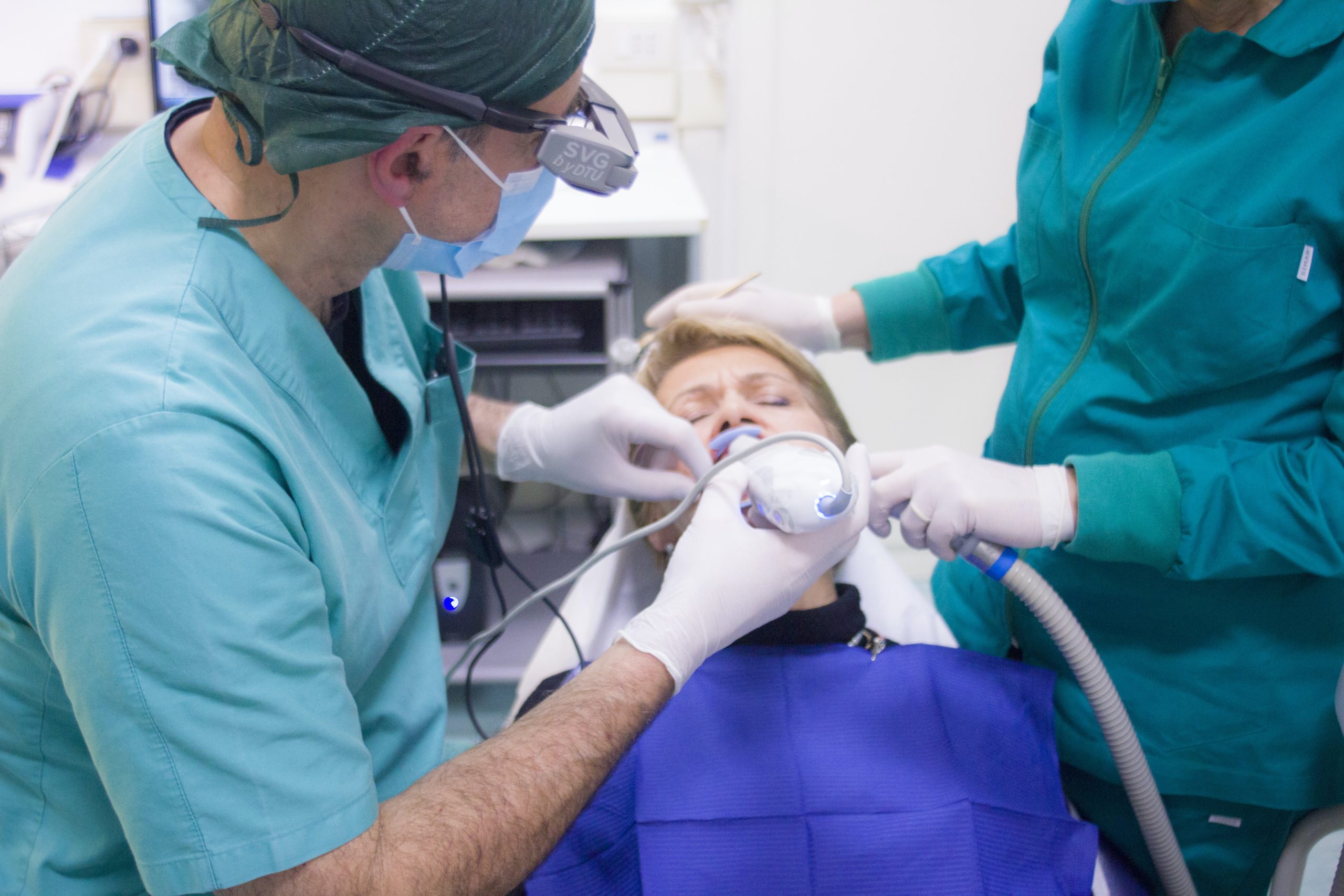Imagine a world where everyone has a bright smile, free from any dental issues or discomfort. It may seem like a dream, but the reality is that maintaining good oral health is crucial to our overall well-being. From preventing tooth decay and gum disease to improving our confidence and quality of life, the importance of oral health cannot be overstated. In this article, we will explore the various reasons why oral health matters and how we can take proactive steps to ensure our mouths stay healthy and happy.
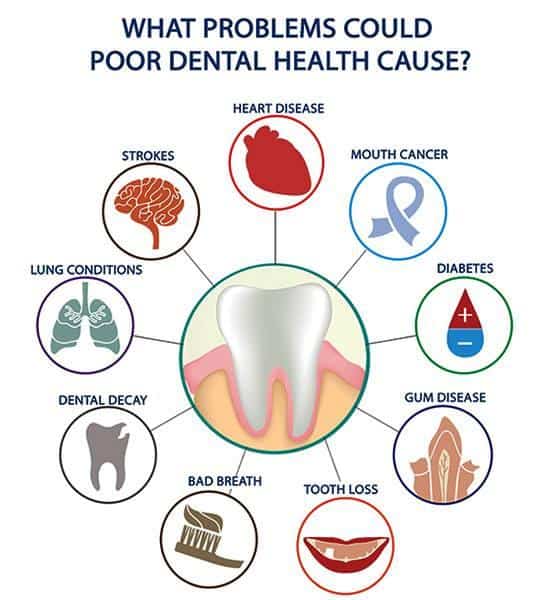
The Connection between Oral Health and Overall Health
The Link between Gum Disease and Chronic Conditions
Taking care of your oral health goes beyond just having a bright smile and fresh breath. Research has shown a clear link between gum disease, also known as periodontal disease, and various chronic conditions. Gum disease is an inflammation of the gums caused by the buildup of plaque, a sticky film of bacteria that forms on your teeth. If left untreated, gum disease can lead to tooth loss and even affect your overall health.
Studies have found that gum disease is associated with an increased risk of developing chronic conditions such as heart disease, diabetes, respiratory infections, and even certain types of cancer. This connection may be attributed to the fact that the bacteria from gum disease can enter your bloodstream and travel to other parts of your body, causing inflammation and damage.
The Impact of Poor Oral Health on Heart Health
Maintaining good oral health is vital for a healthy heart. Poor oral hygiene can lead to the accumulation of bacteria in your mouth, particularly in the gums. These bacteria can then enter your bloodstream and cause inflammation, which may contribute to the development of cardiovascular diseases such as heart disease, clogged arteries, and even heart attacks.
Research has shown that individuals with gum disease are more likely to have heart problems compared to those with healthy gums. Inflammation in the gums can cause inflammation throughout the body, including the arteries, leading to the narrowing and hardening of blood vessels. This can restrict blood flow to the heart and increase the risk of a heart attack or stroke.
The Relationship between Oral Health and Diabetes
If you have diabetes, it is crucial to pay extra attention to your oral health. Diabetes can weaken your body’s ability to fight off infections, including infections in the gums. When your blood sugar levels are not well controlled, it can lead to high glucose levels in your saliva, creating an ideal environment for bacteria to grow and thrive.
Individuals with diabetes are more susceptible to developing gum disease, and gum disease, in turn, can make it more difficult for diabetics to control their blood sugar levels. The two conditions have a reciprocal relationship, with gum disease possibly worsening diabetes control and diabetes increasing the risk of gum disease.
The Connection between Oral Health and Respiratory Health
Maintaining good oral health is not only important for your teeth and gums but also for your respiratory health. Poor oral hygiene can lead to an overgrowth of bacteria in your mouth, which can be inhaled into your lungs and cause respiratory infections such as pneumonia.
Bacteria in the mouth can travel through the respiratory tract and reach the lungs, where they can cause inflammation and infection. This is particularly problematic for individuals with pre-existing respiratory conditions such as asthma or chronic obstructive pulmonary disease (COPD), as they are already more susceptible to respiratory infections.
The Importance of Good Oral Hygiene Practices
The Basics of Good Oral Hygiene
Practicing good oral hygiene is essential for maintaining healthy teeth and gums. It involves a regular routine of brushing your teeth, flossing, and using mouthwash. Brush your teeth at least twice a day using a soft-bristled toothbrush and fluoride toothpaste. Make sure to brush all surfaces of your teeth, including the front, back, and chewing surfaces.
Flossing is equally important as it helps remove plaque and food particles that may be trapped between your teeth and along the gumline. Use a gentle sawing motion to move the floss up and down between each tooth. Don’t forget to rinse your mouth with an antimicrobial mouthwash to kill any remaining bacteria and freshen your breath.
The Role of Brushing and Flossing in Maintaining Oral Health
Brushing and flossing are the cornerstones of a good oral hygiene routine. Brushing your teeth helps remove plaque and bacteria from the surfaces of your teeth, while flossing removes plaque and food particles from between your teeth and along the gumline.
By brushing and flossing regularly, you can prevent the buildup of plaque, which can eventually harden into tartar and cause gum disease. Additionally, brushing and flossing can help prevent tooth decay, bad breath, and other dental problems.
The Importance of Regular Dental Check-Ups
In addition to maintaining a good oral hygiene routine at home, regular dental check-ups are crucial for maintaining optimal oral health. Your dentist can detect any issues early on and provide appropriate treatment before they worsen.
During a dental check-up, your dentist will examine your teeth, gums, and other oral tissues. They may also take X-rays to check for any hidden problems such as cavities or bone loss. Professional cleanings will also be done to remove any tartar or plaque that cannot be removed through regular brushing and flossing.
The Benefits of Professional Teeth Cleaning
Even with regular brushing and flossing, some plaque and tartar may still accumulate on your teeth. These deposits can only be effectively removed through professional teeth cleaning done by a dental hygienist or dentist.
Professional teeth cleaning involves scaling and polishing your teeth to remove any plaque, tartar, and stains. This process not only helps keep your teeth clean and bright but also plays a significant role in preventing gum disease and maintaining overall oral health.

Preventing Dental Issues through Proper Oral Care
The Role of a Balanced Diet in Oral Health
Maintaining a balanced diet is not only important for your overall health but also for your oral health. Consuming a variety of nutrient-rich foods can help support healthy teeth and gums. Foods rich in calcium, such as dairy products and leafy greens, contribute to strong teeth and bones.
Vitamin-rich foods, particularly vitamin C, can help support healthy gum tissue. Include fruits and vegetables like oranges, strawberries, and bell peppers in your diet. Limit your intake of sugary and acidic foods and drinks, as they can contribute to tooth decay and erosion.
The Importance of Limiting Sugar Intake
Excessive sugar consumption can wreak havoc on your oral health. When you consume sugary foods and drinks, the bacteria in your mouth feed on the sugars and produce acid as a byproduct. This acid can attack the enamel of your teeth, leading to tooth decay and cavities.
To protect your teeth, it is essential to limit your intake of sugary foods and drinks, including soda, candy, cookies, and sugary juices. If you do indulge in sweets, remember to brush your teeth afterward to remove any residual sugars from the surfaces of your teeth.
The Effects of Tobacco Use on Oral Health
Using tobacco products, whether smoking or chewing, can have serious implications for your oral health. Smoking is a leading cause of gum disease and can also stain your teeth, cause bad breath, and increase the risk of oral cancer.
Tobacco use weakens your body’s ability to fight off infections, making it harder to recover from oral health issues. It also affects blood flow, reducing the delivery of essential nutrients to the gums and other oral tissues. Quitting tobacco is not only beneficial for your oral health but also for your overall well-being.
The Impact of Alcohol Consumption on Oral Health
Excessive alcohol consumption can have detrimental effects on your oral health. Alcohol is known to dry out the mouth, reducing saliva production. Saliva plays a crucial role in maintaining oral health by neutralizing acids, washing away food debris, and helping to prevent tooth decay.
Dry mouth caused by alcohol can lead to an increased risk of tooth decay, gum disease, and bad breath. Additionally, alcohol abuse has been linked to an increased risk of oral cancer. Moderation is key, and it is important to drink alcohol in moderation and ensure you stay hydrated with water.
Oral Health and Children
Establishing Good Oral Hygiene Habits from an Early Age
Teaching your children good oral hygiene habits from a young age sets them up for a lifetime of healthy teeth and gums. Start cleaning your baby’s gums even before their first tooth erupts by gently wiping their gums with a clean, damp cloth after feedings.
As soon as your child’s first tooth appears, start brushing it with a small, soft-bristled toothbrush and a tiny smear of fluoride toothpaste. Encourage them to brush their teeth twice a day and make it a fun and engaging activity.
The Role of Fluoride in Preventing Tooth Decay
Fluoride is a mineral that plays a crucial role in preventing tooth decay. It strengthens the enamel of your teeth, making them more resistant to acid attacks from plaque and bacteria. Fluoride can be found in most tap water sources, toothpaste, and mouth rinses.
Make sure your child gets enough fluoride by using a fluoride toothpaste appropriate for their age. If your water supply is not fluoridated, consult with your dentist about fluoride supplements or topical treatments they may recommend.
The Importance of Regular Dental Visits for Children
Regular dental visits are essential for children to monitor their oral health and ensure any issues are addressed promptly. The American Academy of Pediatric Dentistry recommends that children should have their first dental visit by their first birthday or six months after their first tooth appears.
During these visits, your child’s dentist will evaluate their oral health, check for cavities, assess their bite, and provide guidance on proper oral care. These early dental visits help acclimate your child to the dental office environment and allow the dentist to identify and prevent any potential dental issues.
The Impact of Pacifier Use and Thumb Sucking on Oral Development
Pacifier use and thumb sucking are common habits among infants and young children. While these habits may provide comfort and self-soothing, prolonged and intense thumb sucking or pacifier use can negatively affect oral development.
Excessive thumb sucking or pacifier use can lead to dental problems such as misalignment of the teeth, an open bite, or an overbite. It is essential to encourage your child to stop these habits as they grow older to prevent any long-term oral health issues. If you have concerns about your child’s thumb sucking or pacifier use, consult with your child’s dentist for guidance.
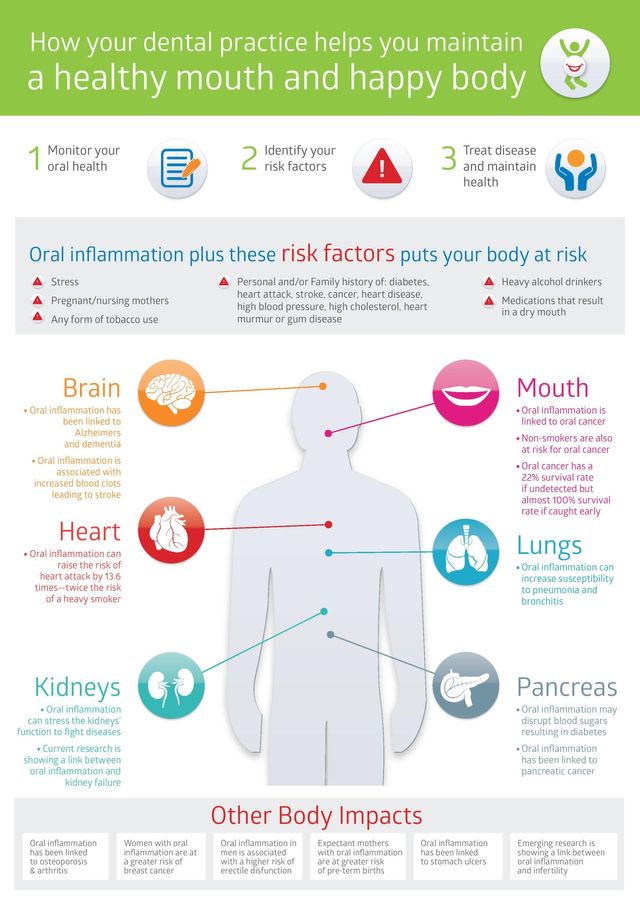
The Psychological and Social Impact of Oral Health
The Role of Oral Health in Self-Esteem and Confidence
Your oral health can significantly impact your self-esteem and confidence. Having a healthy and attractive smile can improve your overall appearance and make you feel more confident in social settings and personal interactions.
On the other hand, dental problems such as missing teeth, stained teeth, or bad breath can have a negative impact on your self-esteem. Poor oral health can make you feel self-conscious and hesitant to smile or engage with others. It is important to prioritize your oral health to not only maintain a healthy smile but also boost your self-esteem.
The Impact of Dental Issues on Social Interactions
Dental issues can affect more than just your self-esteem; they can also impact your social interactions. Bad breath and visible dental problems can make you feel embarrassed and uncomfortable in social situations, leading to social anxiety and avoidance.
Additionally, dental pain or discomfort can affect your ability to speak, eat, and even sleep properly, making it difficult to engage in conversations and enjoy social interactions. By addressing and preventing dental issues, you can improve your social interactions and overall quality of life.
The Connection between Oral Health and Mental Well-being
Oral health has a significant influence on your mental well-being. Research has shown that poor oral health is associated with an increased risk of developing mental health issues such as anxiety and depression. This connection may be due to the psychological impact of dental problems and the negative impact they can have on your quality of life.
Additionally, the pain and discomfort associated with dental issues can affect your sleep patterns and overall mood, contributing to feelings of irritability and low mood. By taking care of your oral health, you can promote better mental well-being and overall happiness.
The Importance of Dental Aesthetics in Personal and Professional Life
Aesthetic considerations are an important aspect of oral health. Having a healthy and attractive smile can positively impact your personal and professional life. A bright smile can enhance your appearance, boost your self-confidence, and leave a lasting impression on others.
In professional settings, an attractive smile can contribute to better job prospects and career success. It can help you feel more confident during interviews, presentations, and client interactions. Similarly, in personal relationships, a healthy smile can make you more approachable and attractive to others.
The Financial Burden of Neglecting Oral Health
The Cost of Treating Dental Issues
Neglecting your oral health can have significant financial consequences. Dental treatments can be expensive, especially if dental problems are left untreated and require more extensive procedures. The cost of treating cavities, gum disease, or tooth loss can quickly add up, leading to substantial expenses.
By prioritizing preventive care and maintaining good oral hygiene practices, you can prevent or minimize the need for costly dental treatments. Regular dental check-ups and cleanings can help detect and address any issues early on, potentially saving you from more extensive and expensive procedures in the future.
The Economic Impact of Oral Health on Individuals and Society
Oral health issues can have a broader economic impact on individuals, families, and society as a whole. Individuals with dental problems may experience difficulty in performing their job duties, take more sick days, or experience decreased productivity due to dental pain or discomfort.
Furthermore, treating oral health problems often requires financial resources, potentially leading to financial strain on individuals and families. From a societal perspective, the economic burden of dental issues includes healthcare costs, loss of productivity, and the impact on healthcare systems and resources.
The Benefits of Dental Insurance and Preventive Care
Having dental insurance can help alleviate the financial burden of dental treatments. Dental insurance plans generally cover or partially cover preventive procedures such as regular check-ups, cleanings, and X-rays. By utilizing preventive care covered by your insurance, you can catch any dental issues early on and prevent them from escalating into more costly problems.
In addition to dental insurance, prioritizing preventive care and maintaining good oral hygiene practices can save you money in the long run. Preventing dental issues through routine dental visits and good oral hygiene can help you avoid the need for expensive treatments and restorative procedures.
The Long-term Savings of Prioritizing Oral Health
Investing in your oral health is a wise financial decision. By prioritizing preventive care, maintaining good oral hygiene practices, and seeking timely dental treatment when necessary, you can potentially save a significant amount of money in the long run.
Preventing dental issues through regular check-ups and cleanings can help avoid the need for costly procedures such as fillings, root canals, or dental implants. Additionally, promoting good oral health can help you maintain your natural teeth longer, reducing the need for costly tooth replacements or dentures.
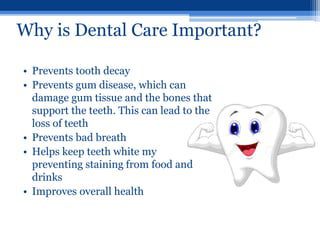
Special Considerations for Older Adults
Common Dental Challenges Faced by Senior Citizens
As we age, our oral health needs change, and older adults may face unique dental challenges. Some common dental issues experienced by seniors include tooth loss, gum disease, dry mouth, and age-related changes in oral tissues.
Tooth loss can occur due to decay, gum disease, or other factors, making it necessary to consider tooth replacement options such as dentures or dental implants. Gum disease is also prevalent in older adults and should be carefully monitored and treated. Dry mouth, often caused by medications, can increase the risk of tooth decay and gum disease.
The Importance of Proper Oral Care in Aging
Proper oral care becomes even more critical as we age. Older adults should continue to brush their teeth at least twice a day using a soft-bristled toothbrush and fluoride toothpaste. Flossing daily and using mouthwash can help remove plaque and prevent gum disease.
Regular dental check-ups and professional cleanings are essential for maintaining oral health. Your dentist can monitor your oral health, address any issues promptly, and provide appropriate guidance on oral care practices tailored to your specific needs as an older adult.
The Role of Medications in Oral Health
Many older adults take multiple medications for various health conditions, and some medications can have adverse effects on oral health. Certain medications can cause dry mouth, which can increase the risk of tooth decay and gum disease.
It is crucial to inform your dentist about all the medications you are taking, including over-the-counter drugs and supplements. Your dentist can work with you and your healthcare provider to develop a dental care plan that takes into account any medication-related oral health issues and minimizes their impact.
The Connection between Oral Health and Nutrition in Seniors
Oral health plays a significant role in nutrition, particularly in older adults. The ability to chew and eat comfortably is necessary for maintaining a nutritious and balanced diet. Dental problems such as missing teeth or ill-fitting dentures can make it challenging to eat certain foods, leading to dietary restrictions and compromised nutrition.
Maintaining good oral health through regular dental visits, proper oral care, and addressing any dental issues promptly can ensure that older adults can enjoy a varied and nutritious diet. Your dentist can provide guidance on oral care practices and recommend any necessary dental treatments to support your nutritional needs.
Oral Health during Pregnancy
Oral Health Changes and Pregnancy Hormones
Pregnancy brings about hormonal changes that can affect your oral health. Many pregnant women experience an increase in hormone levels, particularly progesterone, which can lead to changes in the gums. These hormonal changes can make your gums more sensitive and prone to inflammation, leading to pregnancy gingivitis.
Pregnancy gingivitis is characterized by swollen, red, and bleeding gums. It is important to maintain good oral hygiene during pregnancy to prevent gingivitis from progressing to more severe gum disease. Regular dental check-ups and cleanings are recommended to monitor and address any oral health changes during pregnancy.
The Potential Effects of Poor Oral Health on the Developing Baby
Your oral health during pregnancy can also affect the health of your developing baby. Untreated gum disease has been associated with adverse pregnancy outcomes, including preterm birth and low birth weight. The bacteria from gum disease can enter the bloodstream and potentially affect the placenta and the developing baby.
Maintaining good oral hygiene and seeking timely dental treatment if needed can help reduce the risk of these pregnancy complications. It is essential to communicate your pregnancy status to your dentist so that they can provide appropriate care and guidance.
The Importance of Regular Dental Care during Pregnancy
Regular dental care during pregnancy is crucial for maintaining optimal oral health for both you and your baby. Dental check-ups and cleanings are generally safe during pregnancy, particularly during the second trimester.
Your dentist can assess and address any oral health issues during pregnancy. They can also provide guidance on maintaining good oral hygiene practices and offer any necessary treatments that are safe during pregnancy. It is important to communicate with your dentist and choose dental products that are safe for use during pregnancy.
The Benefits of Good Oral Health for Expectant Mothers
Maintaining good oral health during pregnancy not only helps prevent dental problems but also contributes to your overall well-being. Pregnancy can be a stressful time, and oral health issues can add to that stress. By taking care of your oral health, you can reduce the potential discomfort and pain associated with dental problems.
Additionally, good oral health can improve your overall quality of life during pregnancy. A healthy smile can boost your confidence and enhance your appearance, making you feel more comfortable and positive during this special time. Prioritizing your oral health as an expectant mother is a beneficial way to take care of yourself and your growing baby.
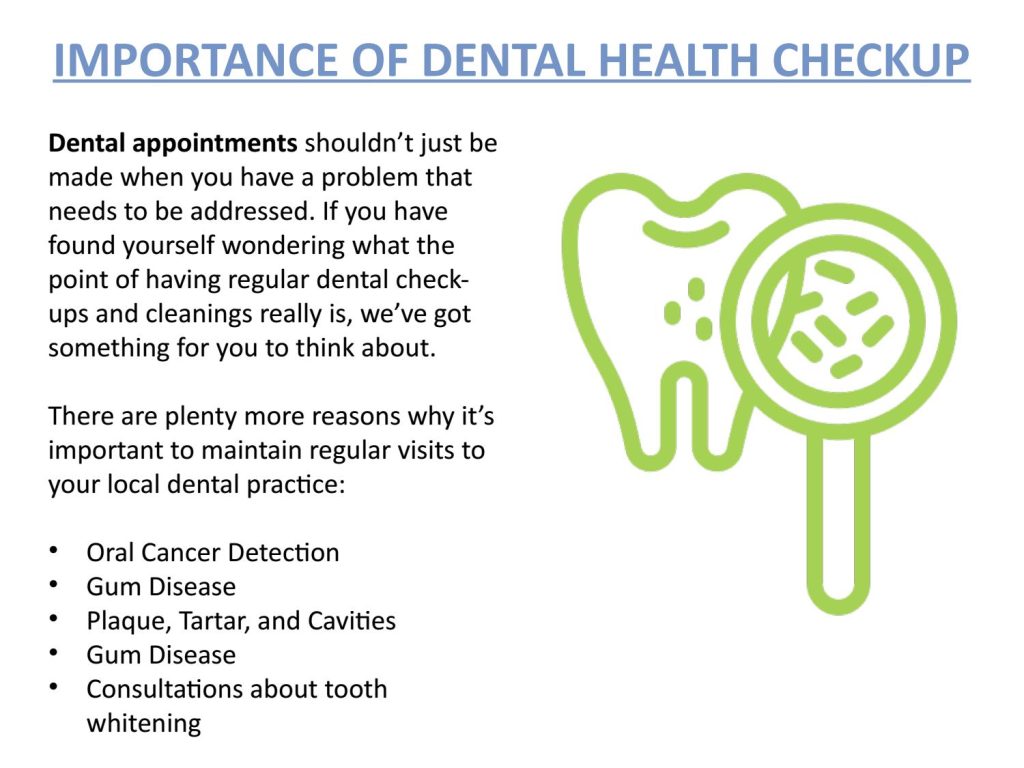
The Importance of Oral Health Education and Promotion
The Role of Schools and Educational Institutions in Oral Health
Schools and educational institutions play a vital role in promoting oral health education and awareness. Establishing oral health education programs in schools can help children learn about the importance of good oral hygiene practices and develop healthy habits from a young age.
These programs can include interactive lessons, presentations, and demonstrations to engage students and teach them how to properly care for their teeth and gums. By instilling good oral health habits early on, schools can contribute to the lifelong oral health of children and future generations.
The Impact of Public Health Campaigns on Oral Health Awareness
Public health campaigns play a crucial role in raising awareness about oral health and promoting good oral hygiene practices. These campaigns often utilize various media platforms to reach a wide audience and educate the public about the importance of oral health.
Public health campaigns may focus on topics such as the link between oral health and overall health, the importance of regular dental check-ups, and preventive care strategies. By disseminating accurate and accessible information, public health campaigns can empower individuals to take control of their oral health and make informed decisions.
The Importance of Dental Education for Healthcare Professionals
Dental education is essential for healthcare professionals to provide comprehensive care to their patients. Dentists, dental hygienists, nurses, and other healthcare providers should receive thorough education on oral health, including the recognition and management of oral diseases.
Through continuing education and professional development programs, healthcare professionals can stay updated on the latest research, technologies, and treatment modalities in the field of oral health. This knowledge allows them to provide optimal care and guidance to their patients, promoting better oral health outcomes.
The Role of Community Programs in Promoting Oral Health
Community programs and initiatives are crucial in promoting oral health, particularly in underserved areas. These programs aim to provide access to oral health services and education to individuals who may have limited resources or face barriers to dental care.
Community programs may include free or low-cost dental clinics, mobile dental units, and oral health screenings. They often collaborate with local organizations, government agencies, and healthcare providers to deliver comprehensive oral health services to the community.
The Impact of Environmental Factors on Oral Health
The Role of Fluoridated Water in Preventing Tooth Decay
Fluoridated water is a significant public health measure in preventing tooth decay. Fluoride, a naturally occurring mineral, strengthens tooth enamel and makes it more resistant to acid attacks from plaque and bacteria.
Fluoridated water supplies have been shown to significantly reduce the prevalence of tooth decay in communities. Drinking fluoridated water, along with using fluoride toothpaste and receiving fluoride treatments from a dentist, can contribute to better oral health outcomes.
The Effects of Air Pollution on Oral Health
Air pollution can have adverse effects on oral health. Particulate matter and toxic chemicals present in polluted air can settle on teeth and gums, leading to plaque buildup, tooth decay, and gum disease.
Exposure to air pollution has also been associated with an increased risk of oral cancer. The toxins in polluted air can potentially damage oral tissues and contribute to the development of cancerous cells.
To protect your oral health in areas with high air pollution, it is important to maintain good oral hygiene practices, including regular brushing, flossing, and dental check-ups. Additionally, reducing exposure to air pollution through environmental measures and wearing masks in heavily polluted areas can help mitigate the risks.
The Connection between Poor Sanitation and Oral Diseases
Poor sanitation practices can contribute to the development of oral diseases. Inadequate access to clean water, proper waste disposal, and basic oral hygiene tools can compromise oral health and increase the risk of infections.
Lack of clean water for rinsing or toothbrushing, improper disposal of dental waste, and insufficient oral hygiene practices can contribute to the spread of oral diseases such as gum disease and tooth decay.
Improving sanitation practices and promoting access to basic oral hygiene resources are crucial steps in preventing oral diseases in underserved areas and promoting good oral health for all.
The Importance of Access to Dental Care in Underserved Areas
Access to dental care is a significant factor in maintaining good oral health, yet many individuals, particularly those in underserved areas, face barriers to proper dental care. Limited access to dental services can prevent timely detection and treatment of oral health issues, leading to more severe and costly problems in the long run.
Efforts should be made to address these disparities and increase access to dental care in underserved areas. This can include expanding community dental clinics, implementing mobile dental units, and providing financial assistance programs to ensure that everyone has the opportunity to receive essential dental care.
In conclusion, oral health is connected to overall health and plays a crucial role in our well-being. Maintaining good oral hygiene practices, addressing dental issues promptly, and seeking regular dental care are essential for ensuring optimal oral health. From reducing the risk of chronic conditions to improving self-esteem and quality of life, investing in oral health has far-reaching benefits for individuals, communities, and society as a whole. By raising awareness, promoting education, and improving access to dental care, we can work towards a healthier future with improved oral health for everyone.







